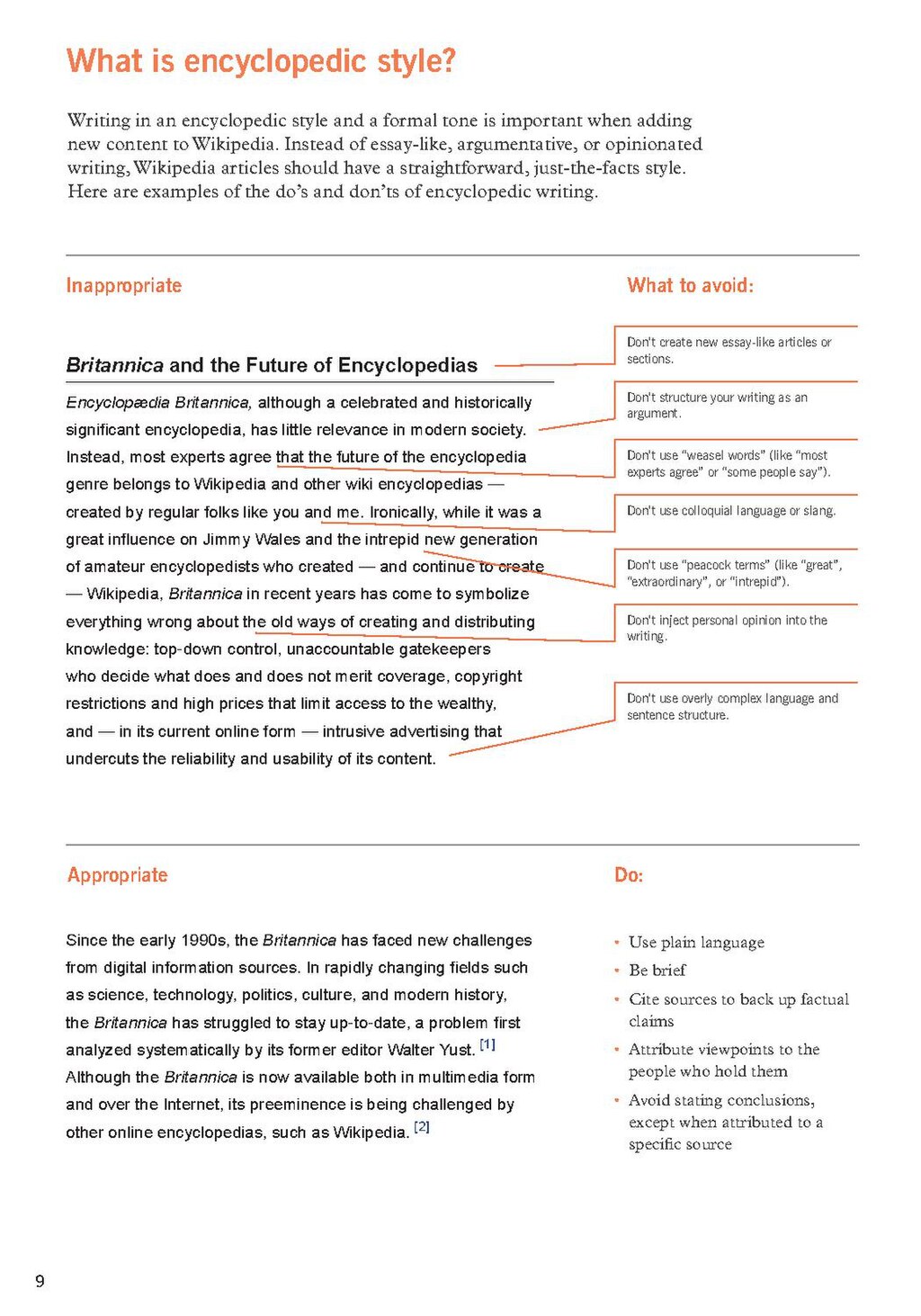What is encyclopedic style?
Writing in an encyclopedic style and a formal tone is important when adding new content to Wikipedia. Instead of essay-like, argumentative, or opinionated writing, Wikipedia articles should have a straightforward, just-the-facts style. Here are examples of the do's and don'ts of encyclopedic writing.
Inappropriate
- Britannica and the Future of Encyclopedias
Encyclopædia Britannica, although a celebrated and historically significant encyclopedia, has little relevance in modern society. Instead, most experts agree that the future of the encyclopedia genre belongs to Wikipedia and other wiki encyclopedias — created by regular folks like you and me. Ironically, while it was a great influence on Jimmy Wales and the intrepid new generation of amateur encyclopedists who created—and continue to create — Wikipedia, Britannica in recent years has come to symbolize everything wrong about the old ways of creating and distributing knowledge: top-down control, unaccountable gatekeepers who decide what does and does not merit coverage, copyright restrictions and high prices that limit access to the wealthy, and—in its current online form—intrusive advertising that undercuts the reliability and usability of its content.
- What to avoid
- Don't create new essay-like articles or sections.
- Don't structure your writing as an argument.
- Don't use "weasel words" (like "most experts agree" or "some people say").
- Don't use colloquial language or slang.
- Don't use "peacock terms" (like "great", "extraordinary", or "intrepid").
- Don't inject personal opinion into the writing.
- Don't use overly complex language and sentence structure.
Appropriate
Since the early 1990s, the Britannica has faced new challenges from digital information sources. In rapidly changing fields such as science, technology, politics, culture, and modern history, the Britannica has struggled to stay up-to-date, a problem first analyzed systematically by its former editor Walter Yust. [1] Although the Britannica is now available both in multimedia form and over the Internet, its preeminence is being challenged by other online encyclopedias, such as Wikipedia. [2]
- Use plain language
- Be brief
- Cite sources to back up factual claims
- Attribute viewpoints to the people who hold them
- Avoid stating conclusions, except when attributed to a specific source
